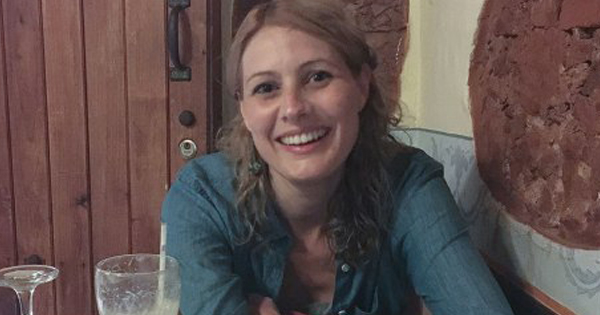Amy Willis found herself in pain as soon as she woke up one day in November last year. After taking an aspirin, the pain subsided. But after four more hours, the pain went back and she felt like throwing up, she wrote for the Metro.
Willis, who lives near Bromley, South London, was getting a haircut when she felt the need to vomit. She had to ask the hairdresser how long would the job take until it’s done. She was afraid that she might just make a mess right there.
Forty-five minutes after the haircut was done and she managed to get home safely, she threw up last night’s curry into the toilet bowl and almost called it a day. However, things escalated to the very worst. Willis felt as if her organs were malfunctioning.
She wrote, “My stomach felt like a hard ball ripping through my insides. My entire body convulsed and I found myself writhing around in the fetal position, shaking in pain. My one-year-old dog Scout, was scampering about the room trying to nuzzle my head and lick my ear. She knew something wasn’t right.”
Willis continued, “I knew it was appendicitis as soon as the pain got really bad. Six months earlier, mum’s appendix burst inside her like an overstretched balloon following three days of misdiagnosis.”
Willis’ mother confided to her that she believed the appendicitis was triggered by a mackerel plate, suggesting it was food poisoning. Then, her grandmother said that had the appendicitis the same age as her mother when she had it. That’s when the doctors figured out what was happening.
Willis said, “They say appendicitis isn’t hereditary, but all three of us went down with the condition.”
Willis realized that she had to call the ambulance immediately. She called her friends in New Cross and in Orpington, but they didn’t answer due to the fact that it was a Saturday night. Willis even called her former boyfriend for help. She said, “Awkwardness tends to go out the window when you’re in extreme physical pain.”
Willis didn’t want to call 999, which is the British equivalent of 911, because she thought it was a little too “dramatic. Like yelling, ‘I’m a priority!’ in a room full of people needing medical help. It still makes me cringe thinking about it now.”
Eventually, Willis came to her senses and dialed the number. She recalled that what happened was somehow faint. However, she heard a response she never thought she would hear: “No.”
Willis said, “To this day I have no idea why. I look back now and wonder if it was because I physically made the call myself. She didn’t ask whether I could get to hospital another way and the implication was that I didn’t need to go. Instead, she told me to call 111 and rang off.”
Then, she started crying. Willis said that she was still baffled that the call operator made her feel like her life wasn’t a priority, even though she acknowledged earlier that what she was suffering wasn’t as bad those in the hospital was fighting against.
Willis wrote, “… if one of those callers with a life-threatening condition is refused help based on a snap assessment like mine, the consequences could be far worse. People don’t have to be unconscious to need emergency care.”
A spokesperson for the London Ambulance Service told Metro, “We are very sorry for any discomfort and distress experienced. When the patient called us with abdominal pain, she was conscious, breathing and alert and not requiring an immediate ambulance response.
“We referred her to NHS 111 for an enhanced clinical assessment who agreed that an immediate emergency response was not required, but she did need to be taken to hospital. We were extremely busy when she called, taking over 320 calls an hour.
“As always, we prioritize all of our patients so that those in life-threatening conditions, such as cardiac arrest, or those with severe blood loss or burns, or who are choking, get the quickest response.”
A spokesperson for NHS England said, “There isn’t a central policy on dispatch/non-dispatch of ambulances to 999 calls. The decision to send an ambulance or not is made as a result of triage of each individual call based on the information given by the caller.”





